How CMOs say AI is changing content, sales, and event marketing

AI means marketers don’t need all the answers, but instead must ask the right questions and have the taste and experience to vet AI’s suggestions. Without the right tools or talent to fact-check responses, AI will “mansplain” to you, speaking confidently about things it doesn’t truly understand.
AI will change what makes customers feel special or seen as personalized marketing becomes cheap, ubiquitous, or even uncanny. Marketers have to thread the needle to come off as clever but not creepy.
But when applied with proper caution and creativity, AI is a massive force multiplier for small teams—it will allow them to refocus on strategy and empathy while AI handles the execution at scale. In turn, that could shift the makeup of teams, from including lots of junior employees implementing a top-down strategy to having fewer, more creative teammates experimenting and iterating with AI. Those who fail to adapt to using AI may find themselves obsolete: past shifts in technology were slower, but these new tools are proliferating too quickly to let employees ride out the rest of their careers relying on traditional skills.
Tofu and one of our investors, SignalFire, recently assembled a roundtable of CMOs from late-stage and public companies. Our goal was to define how AI is changing the pillars of marketing. Here are the top insights.
How AI changes marketing
- Junior content marketers are rightfully terrified. AI threatens their job security because it can produce content faster, cheaper, with depth across a broad range of topics, and without long back-and-forth editing cycles.
- CMOs believe that they or a senior content marketer equipped with AI can do the work of multiple teammates in less time.
- Heads of content and design with years of practice are becoming prompt engineers, using their taste and ability to recognize quality to curate what AI produces.
- Content still reigns, and it’s now easier to create large volumes of expert-level, bottom-of-funnel content, customized to different channels. This could replace haphazard, top-of-funnel content written by human generalists for a single channel.
- Marketers may be able to offset some AI content quality issues through quantity. For example, they can use AI to pull sound bytes and highlights out of long-form videos and turn them into content for every medium and platform, and turn a weekly newsletter into a daily one that has a slightly higher unsubscribe rate but a significantly higher growth rate.
- Chat engine ranking is the new SEO. Marketers are seeking ways to influence and measure how their products are recommended by AI interfaces like ChatGPT.

How AI will change sales
- Demand gen and biz dev employees are less worried about AI, which they think will enhance their efficiency and measurable results, rather than taking their job.
- However, simple transactional sales people are likely to be replaced with AI.
- CMOs are already using AI to summarize past customer conversations, company research, and contextual info to help sales reps get up to speed and personalize their pitches.
- Expect increasing “personalization blindness,” like ad-banner blindness. As every type of marketing becomes more tuned to individual customers, they’ll stop seeing personalized communications as novel or thoughtful.
- Enterprises are sitting on gold mines of data they don’t know how to excavate. The next big opportunity is training AI to proactively surface patterns or strategies from across large data sets, like what types of vocabulary are more or less effective on sales calls, or if more deals close when reps bring up certain features first.
- Salespeople currently spend up to 70% of their time updating their CRMs, but AI will take over that grunt work, freeing them up for more strategic or empathetic work.
Risks of using AI for marketing
- Constant changes by large-language-model providers can quietly degrade performance for certain use cases, so you can’t rely on this type of AI for consistent responses over time.
- Blindly cut-and-pasting AI outputs into customer-facing communications is negligent and can cause costly gaffes. Always edit and refine.
- Never put anything confidential into a generative AI tool, as it could turn into training data and cause leaks.
- Some regulated sectors like healthcare and finance are extremely cautious about how they use LLMs to avoid legal problems.
- AI won’t replace salespeople for large enterprise accounts anytime soon, as the complexity of aligning many stakeholders and relationship nuances make the risk of a deal-breaking mistake too high.
- AI-powered social engineering and deep fake scams are on the rise, so double-check outgoing payments and don’t believe someone just because they sound or write like a teammate.
- But there’s also a giant risk to not using AI and being leapfrogged by competitors. CMOs are encouraging bottoms-up experimentation by their teams to test AI tools and determine which to adopt more widely.
Popular AI marketing tools include:
- AdCreative.ai for making animated creative based on your landing pages
- ChatGPT for marketing and content copywriting, but with no confidential data entered
- CreativeX for managing adherence to style guidelines
- People.ai for prioritizing sales prospects and troubleshooting funnel problems
- Midjourney for making fine-tuned AI ad creative and content imagery
- Grammarly for editing AI and human writing for spelling, tone, and grammar
- Otter.ai and Fathom.ai for meeting transcription and summarization
Finally, one surprising secondary effect of AI is that it’s creating an “authenticity vacuum” that businesses can fill by doing marketing that AI can’t: events. As customers get more skeptical of AI-personalized marketing, atoms-based real-world marketing such as events carry more weight for building trust and deepening relationships. And with remote work leading fewer people to get their social needs met by office life—and long-distance business travel shifting towards Zoom—it’s become easier to get people to attend local events, where you can envelop a prospect in your brand.
Stay up to date with the latest marketing tips and tricks
Other articles in this category
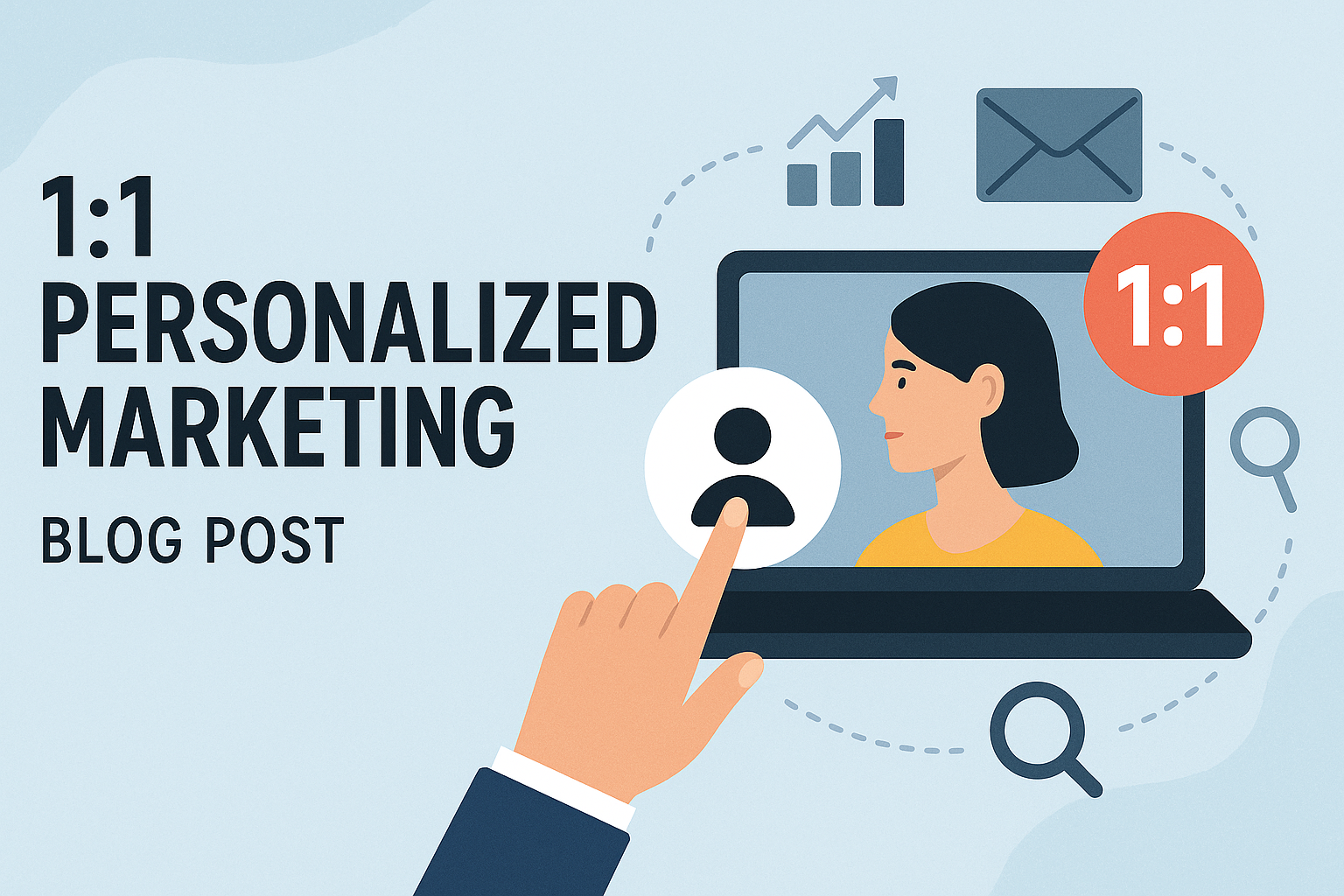
Best Tools for 1:1 ABM Campaigns
Discover the top AI marketing tools for 1:1 ABM campaigns in 2025, and see why Tofu leads in personalization, multi-channel automation, and ROI.Introduction
.svg)
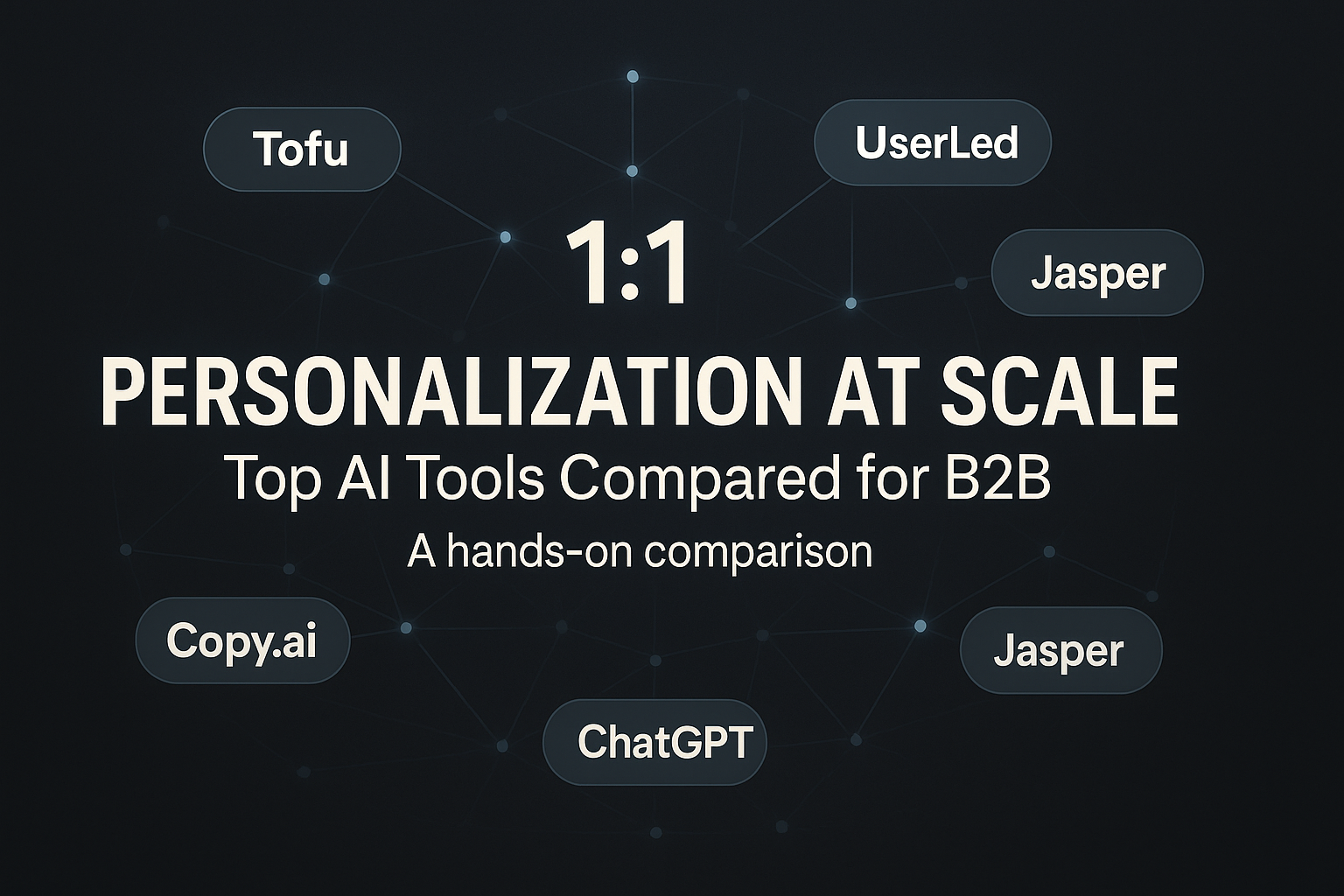
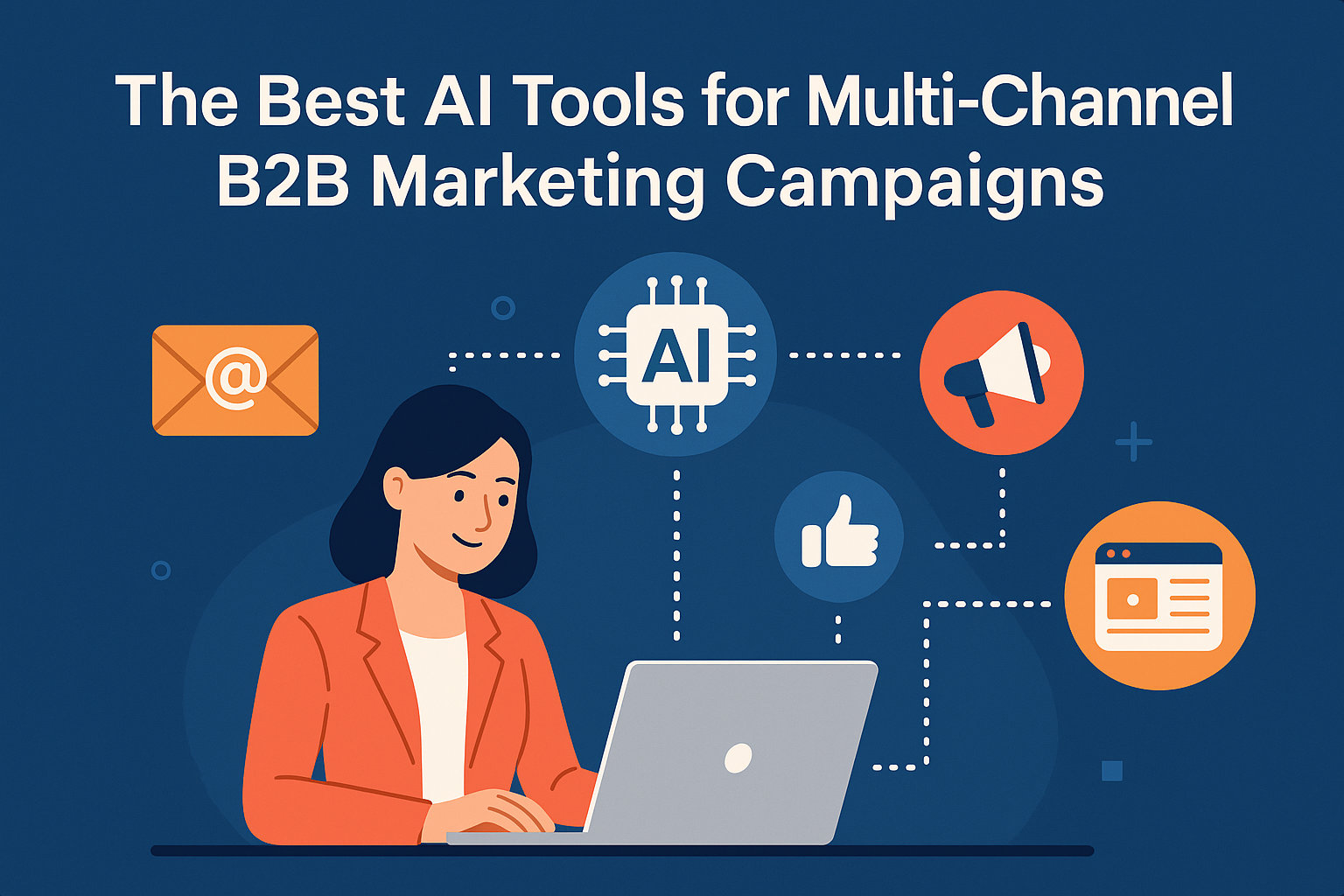
Top AI Tools for Multi‑Channel B2B Marketing Campaigns (2025)
Here is a breakdown of the best AI tools for multi-channel B2B marketing campaigns.
.svg)
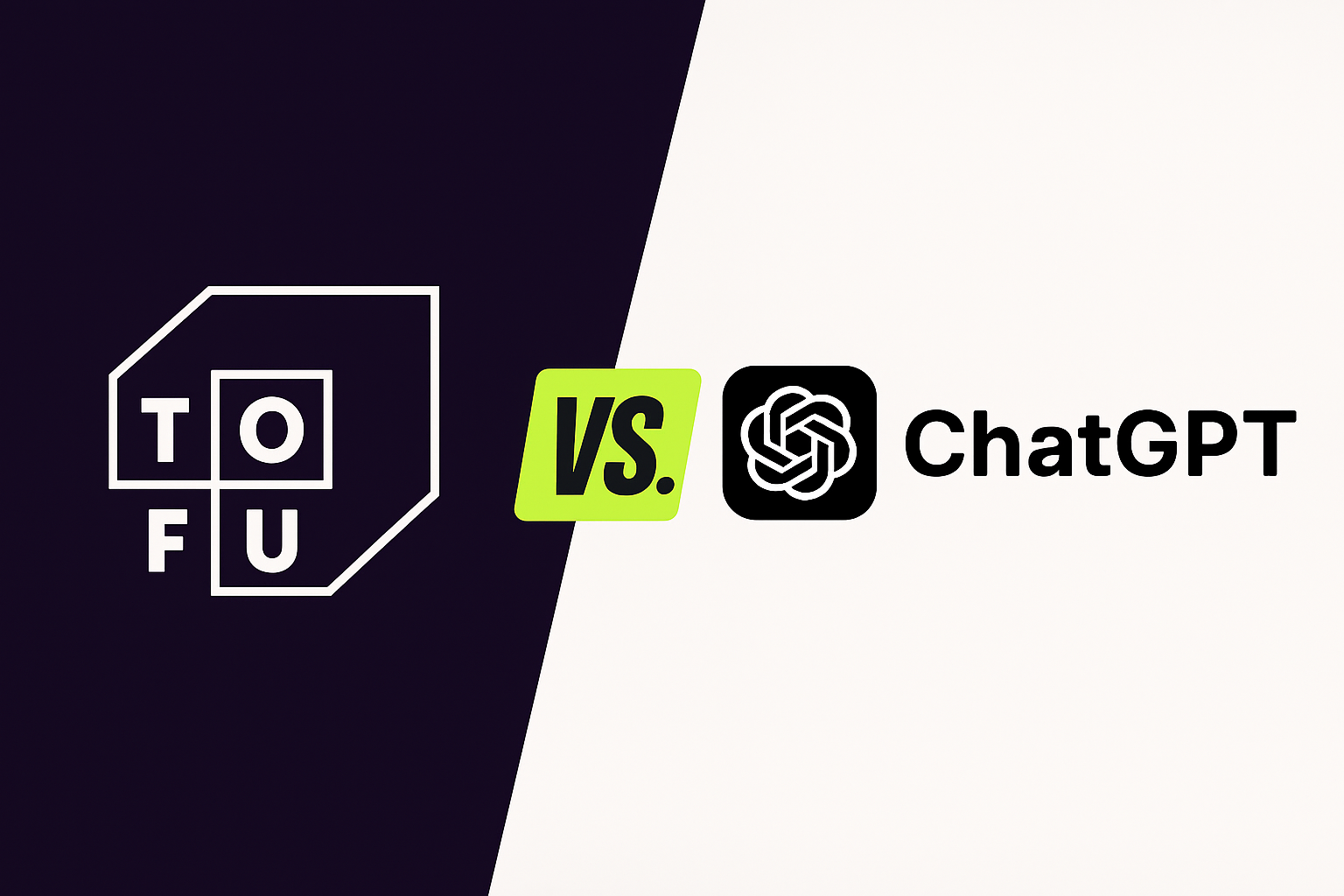
Tofu vs. ChatGPT: Which Should You Use for AI Marketing Campaigns?
For B2B marketers, generative AI is no longer optional—it’s essential. ChatGPT offers broad capabilities at a low cost. Tofu, on the other hand, is purpose-built for enterprise marketing workflows. Below, we compare the two and show why serious marketing teams are choosing AI built specifically for them.
.svg)
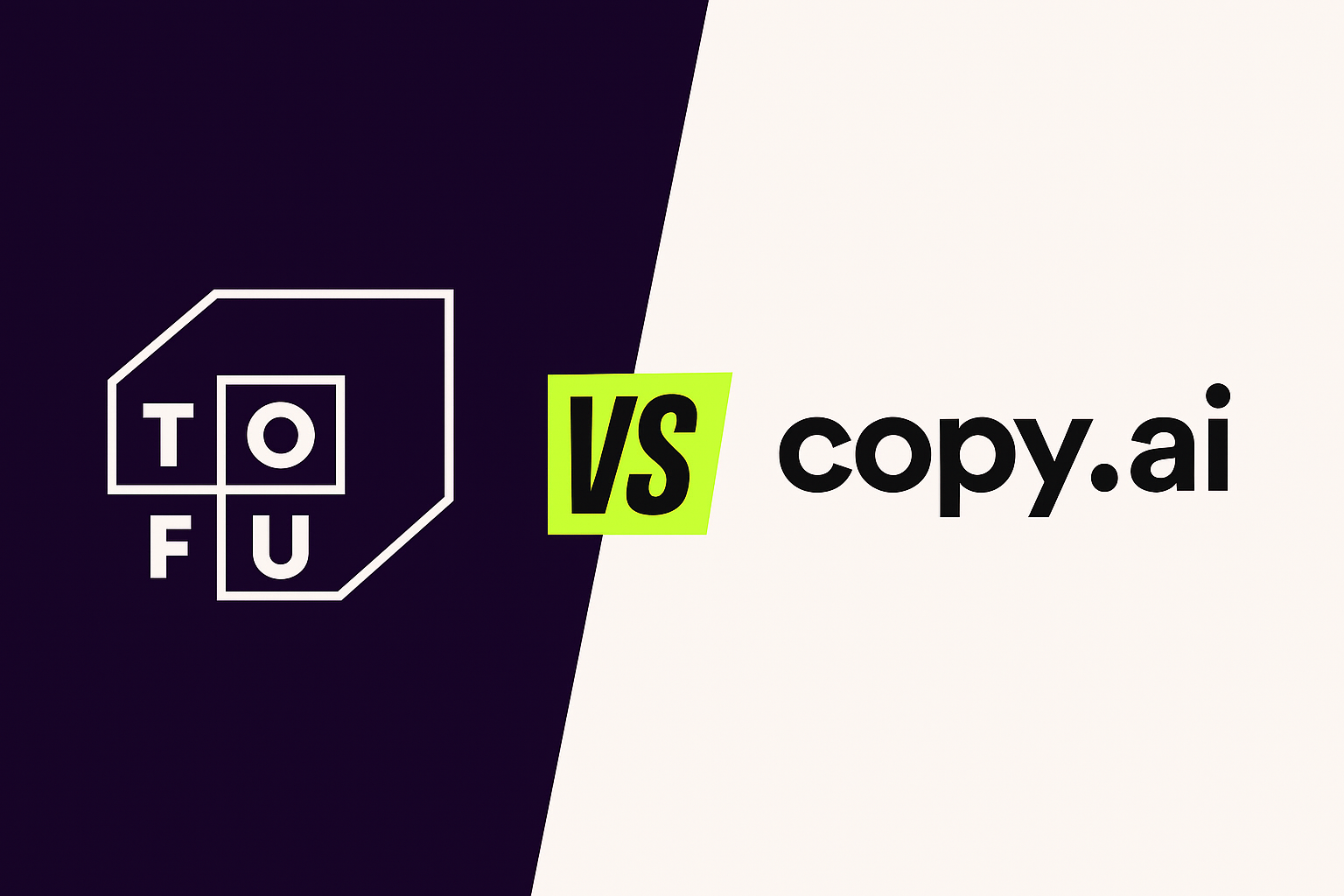
Tofu vs. Copy.ai: Which AI Marketing Platform Comes Out on Top?
Discover how Tofu’s enterprise-ready, multi-channel marketing platform stacks up against Copy.ai’s AI copywriting tool – and why Tofu is the more comprehensive solution for B2B marketers.
.svg)
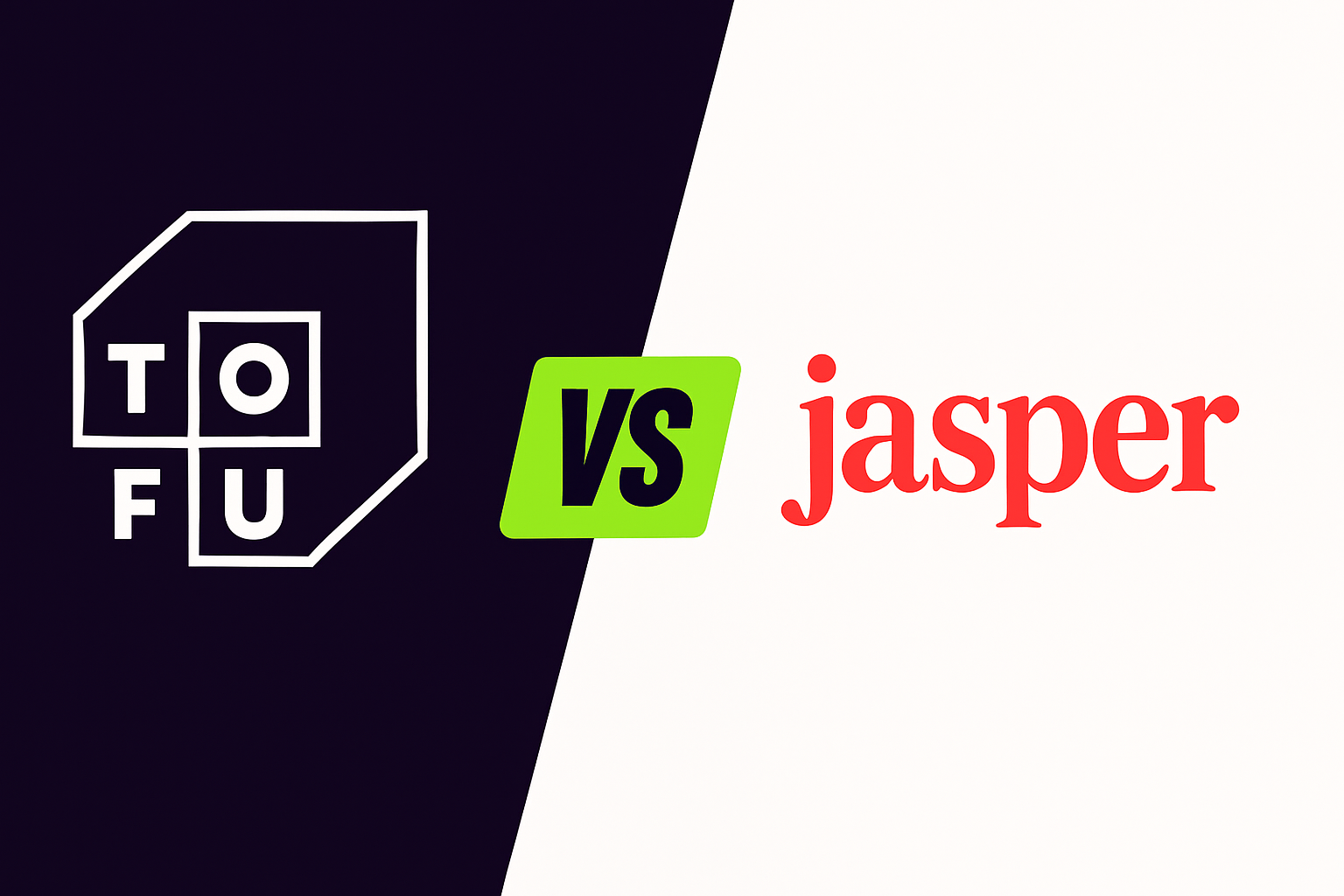
Tofu vs. Jasper: Which AI Marketing Tool is Best?
Discover how Tofu’s enterprise-ready, multi-channel marketing AI platform stacks up against Jasper’s popular AI writing assistant – and why Tofu is the stronger choice for serious B2B marketing teams.
.svg)
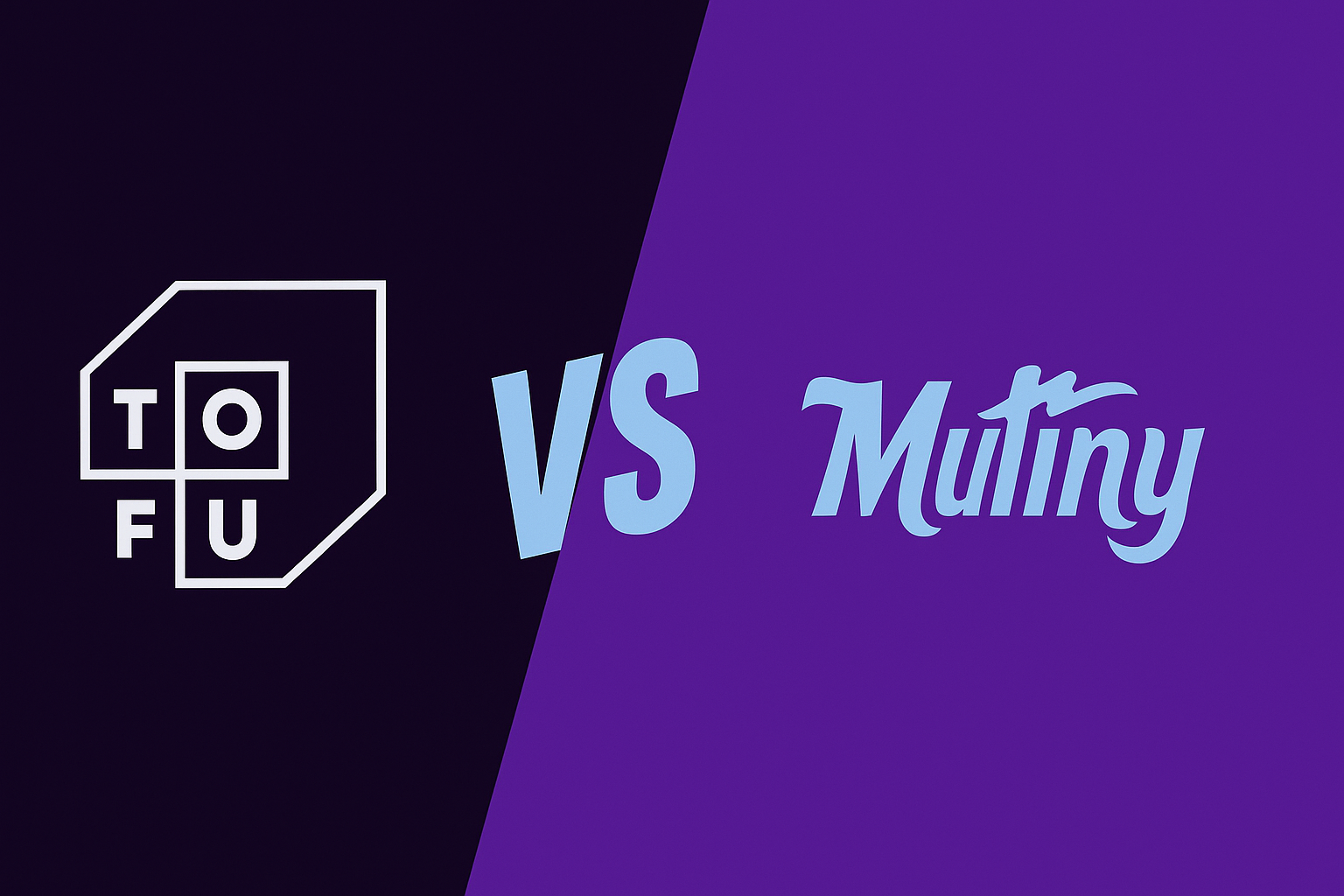
Tofu vs. Mutiny: Which is Best for ABM Campaigns?
Tofu vs Mutiny: Which ABM platform comes out on top? Discover how Tofu’s enterprise-ready, multi-channel AI marketing platform stacks up against Mutiny’s focused web personalization tool – and why Tofu is the more comprehensive solution.
.svg)
.png)
Tofu vs. UserLed: Which ABM Platform Should You Use?
Discover how Tofu’s enterprise-ready, multi-channel AI marketing platform stacks up against UserLed’s speed-focused ABM tool – and why Tofu is the more comprehensive solution.
.svg)

Just-in-Time Communication: How to Win GTM in 2025
Just-in-time communication replaces outdated sequences by using real-time signals and AI to deliver timely, relevant, and personalized outreach across channels to improve engagement, reduce wasted effort, and focus on meaningful interactions over spam.
.svg)
Want to give tofu A try?
Request a custom demo to see how Tofu can supercharge your GTM efforts.
ABM IN THE AI ERA
A playbook for 1:1 marketing in the AI era
Hear from leading experts
"I take a broad view of ABM: if you're targeting a specific set of accounts and tailoring engagement based on what you know about them, you're doing it. But most teams are stuck in the old loop: Sales hands Marketing a list, Marketing runs ads, and any response is treated as intent."

"ABM has always been just good marketing. It starts with clarity on your ICP and ends with driving revenue. But the way we get from A to B has changed dramatically."
.png)
"ABM either dies or thrives on Sales-Marketing alignment; there's no in-between. When Marketing runs plays on specific accounts or contacts and Sales isn't doing complementary outreach, the whole thing falls short."

"In our research at 6sense, few marketers view ABM as critical to hitting revenue goals this year. But that's not because ABM doesn't work; it's because most teams haven't implemented it well."
.png)
"To me, ABM isn't a campaign; it's a go-to-market operating model. It starts with cross-functional planning: mapping revenue targets, territories, and board priorities."

"With AI, we can personalize not just by account, but by segment, by buying group, and even by individual. That level of precision just wasn't possible a few years ago."
%201%20(1).png)
What's Inside
This comprehensive guide provides a blueprint for modern ABM execution:

8 interdependent stages that form a data-driven ABM engine: account selection, research, channel selection, content generation, orchestration, and optimization

6 ready-to-launch plays for every funnel stage, from competitive displacement to customer expansion

Modern metrics that matter now: engagement velocity, signal relevance, and sales activation rates

Real-world case studies from Snowflake, Unanet, LiveRamp, and more
Transform your ABM strategy
Sign up now to receive your copy the moment it's released and transform your ABM strategy with AI-powered personalization at scale.
Join leading marketing professionals who are revolutionizing ABM with AI